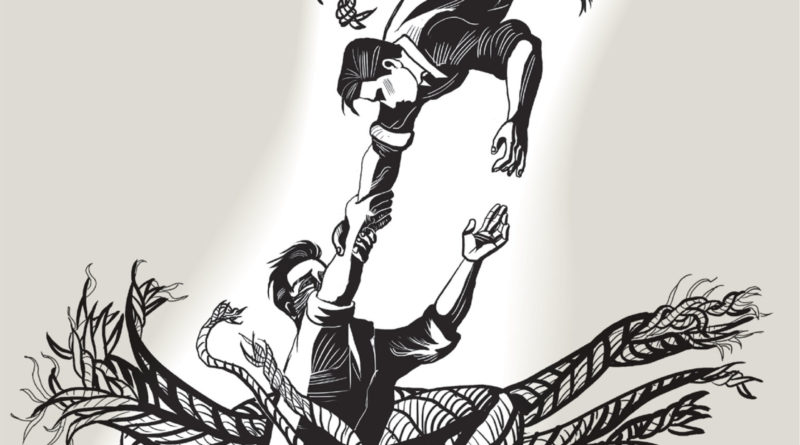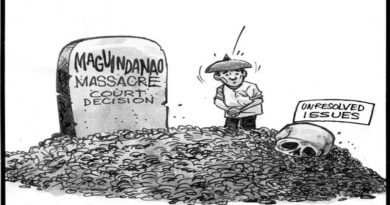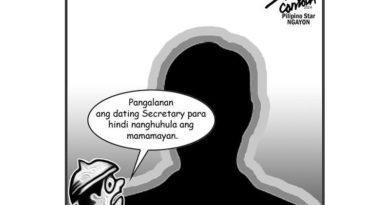OP-ED SG: Thinking Aloud Covid-19 shows why tackling inequality benefits everyone
The Covid-19 pandemic has exposed the weakest points in every country, including Singapore.
The virus is the same everywhere but it has had very different impacts on countries and how they respond to the invisible enemy.
The differences are almost like night and day: You just have to compare the number of cases and fatalities in the worst-hit places, such as the United States, Italy and Spain, with those that have been less affected, like Taiwan, Hong Kong and New Zealand.
Two weeks ago I might have included Singapore in the second list but there has been a recent spike in cases, raising questions about whether more stringent measures, including mandatory wearing of masks, should have been introduced earlier.

Why have some places done better than others?
There are many reasons: the quality of the healthcare system, the culture of the people with regard to following official advice and rules, the organisation of public agencies and the decisiveness and clarity of thinking of the country’s leadership.
All have a bearing on the outcome.
There will be time later, when this crisis is over, for scholars and experts to present their detailed analyses of what made the biggest difference. For now though, even as the pandemic rages, major fault lines have been exposed in every society, here and elsewhere, by the coronavirus.
First on the list has to be the disparity between the top and bottom segments of the population and the inequality that arises as a result.

Inequality isn’t a new issue and has been discussed extensively over the past few years, but the pandemic has brought into the open not only what this many-headed animal looks like but also where its tentacles reach.
It is not just incomes but also healthcare, workplace conditions and housing. In every one of these areas, the disease – and the subsequent economic dislocation – has hit the poor and vulnerable hardest.

They have suffered an epidemic of multiple whammies.
When lower-income people lose their jobs or get a pay cut, it hurts much more because they have little savings if any to fall back on.
This has special relevance here because whenever poverty is discussed in Singapore, it is often argued that even the poorest own their HDB flats, worth at least a few hundred thousand dollars.
But you can’t eat your flat.
If the pandemic is prolonged, these asset-rich, cash-poor Singaporeans will be severely hit by the economic depression to follow.

But at least they have a roof over their heads.
The plight of the homeless was reported in this newspaper on Monday.
Unable to sleep on park benches or other public spaces because of the circuit breaker restrictions, they now have to seek shelter in homes run by charities. But these places are full because new social distancing rules have limited the numbers that can be taken in.
The situation is so bad that Homeless Hearts of Singapore, an outreach group, has described it as a humanitarian crisis in the making.
As for healthcare, everyone knows that access to it is partly dependent on your ability to pay but the pandemic has also exposed a more deadly linkage between incomes and health.

The Covid-19 virus is most severe for those with underlying medical conditions, including diabetes, hypertension and heart disease.
Many of these are so-called lifestyle illnesses which afflict poorer people to a greater extent than others.
It is the reason why blacks and Hispanics are disproportionately represented among Covid-19 fatalities across the US, including New York. They are not only dying at a faster rate than others but many bodies also remain unclaimed and are buried in mass graves on an island off the city.

Meanwhile, the workplace divide has become more evident because of the work-from-home rule being implemented everywhere.
Who are the people able to continue working from home without suffering too much disruption? They are mainly managerial, administrative and financial professionals and those in the knowledge industry who also happen to be among the better-off half of the population.
But if you work with your hands on a construction site, are a waiter at a restaurant or cleaner at a hawker centre, or drive a cab, working from home means being out of a job.

.
.
To be fair, most governments, including Singapore’s, recognise this problem and have poured billions of dollars into income support for these workers.
They are necessary initiatives but immediate monetary help can only do so much.
What the pandemic has exposed is that those societies which already have adequate facilities and programmes to shelter the homeless, distribute food to the needy, provide healthcare to the vulnerable and retirement security to the aged can implement measures to deal with the virus more readily.
In Singapore, much of this work is done by charities and voluntary welfare organisations, a result of the Government’s many helping hands approach.

They depend on public donations and volunteers, both of which are in danger of drying up during this trying period. They will need more help or even more people will fall through the cracks.
The biggest inequality fault line in Singapore which the pandemic has exposed has to do with the living and working conditions of the 200,000 foreign workers on work permits doing lowly paid work which Singaporeans shun.
The biggest clusters of infected cases are now in dormitories built to standards set by the authorities.

.
These are much improved compared with the rudimentary housing provided before but it was always going to be a challenge making sure the actual living conditions in these dorms were up to scratch when so many workers live communally together.
In fact, you don’t have to go into the dormitories to see how differently foreign workers live and work compared with the rest of the population.
During lunch time at many worksites across the island, including at the university I am in, they eat wherever they may be working, sitting cross-legged on the floor.
You can find them taking their short after-lunch naps at staircase wells, along corridors and beside open drains.
Can a developed affluent society like Singapore tolerate having workers in its midst who live and work to a very different standard from the rest? It has to do better to provide them with better living and working conditions or else rethink its longstanding dependency on them.

What the coronavirus has shown is that eventually the weakest link will give way and infect other parts of the society and the whole will suffer as a result.
When a virus jumps from a foreign worker dormitory to someone outside, it does not discriminate one from the other.
Everybody suffers the same fate because the behaviour of one group affects others, and finally the whole. Covid-19 has made it plainer for everyone to see this simple truth.
Think of the virus as a metaphor for the social ills spread by society’s inequality and it is easier to understand why the problems of any one group – the poor, aged or vulnerable – will infect others and finally the entire society.

.
It is not possible to contain or quarantine the problem, just as it was not possible to do so for unsanitary dormitories housing so many workers. In this case, they were foreign workers but you could apply the argument to, say, citizens living below the poverty line.
You can’t quarantine their problems from the rest of society.
Sooner or later, they will become everybody’s.
This is yet another lesson from the pandemic.


• Han Fook Kwang is also a senior fellow at the S. Rajaratnam School of International Studies, Nanyang Technological University.
THE EDITOR:












